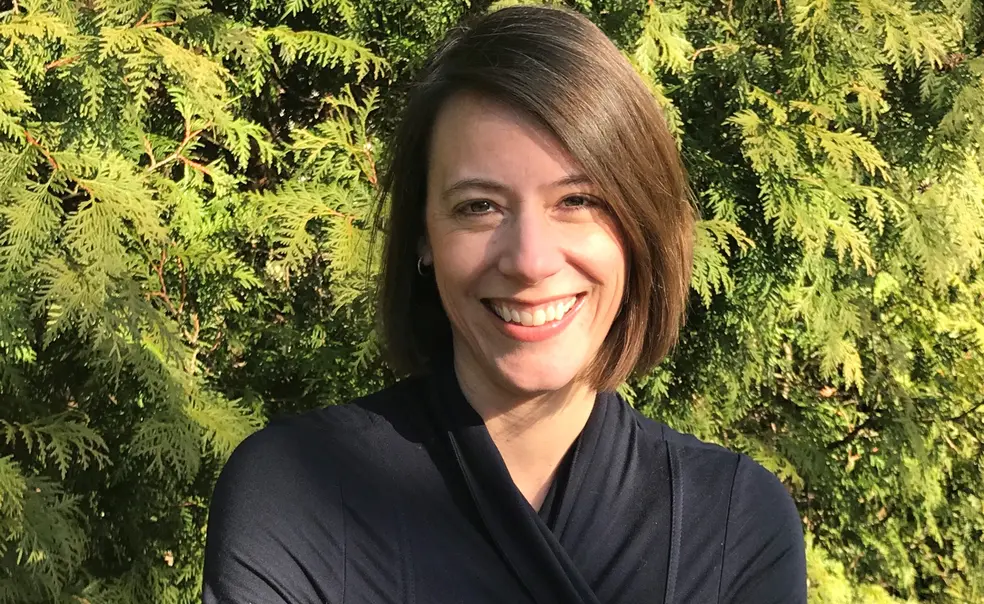Public Health Educator Lindsey Leininger ’99 Helps Combat Coronavirus Misinformation
“It’s important for scientists to use the power of their personal connections to spread reliable information”
As the coronavirus ricochets around the planet, a cascade of misinformation has followed. A study by researchers at the University of Oxford published on April 15 found that about one-third of people polled in six countries, including the United States, say they have seen false or misleading information about the virus online.
Lindsey Leininger ’99, a public health educator and researcher and a clinical professor at Dartmouth’s Tuck School of Business, found herself getting a lot of questions from friends and students as concerns about the virus spread. “My students asked if it was OK to eat apples and if they should cancel their travel plans,” she said.
So Leininger teamed up with a couple of friends, all who hold doctorates in various fields, to start Dear Pandemic, a Facebook page offering evidence-based advice on COVID-19.
“We wanted to do our part to push back against misinformation with evidence and facts,” she said. “We hoped to amplify the good information being pushed out by fellow scientists and provide it to lay audiences.”
Launched March 13, the page had 7,000 followers and reached 40,000 people a week by mid-April. It is now run by nine women, all professors at colleges and universities around the world with expertise in public health. They call themselves “The Nerdy Girls.”
Three others also have Princeton connections: Jennifer Beam Dowd *04 is an associate professor of demography and population health at Oxford; Lauren Hale *03 is a professor of family, population, and preventive medicine at Stony Brook University; and Alison Buttenheim, who completed a postdoctoral fellowship at Princeton, is an associate professor of health policy and nursing at the University of Pennsylvania.
The women post articles from newspapers and magazines they’ve deemed reliable, and answer questions posed by those on Facebook and friends and family. Recent posts have answered queries about the proper fit of a face mask (snug), whether lower-than-forecasted deaths in some areas means that social distancing was an overreaction (no), and whether it’s safe to get together with a small group of friends (no).
Leininger explored her interest in public health during high school and then at Princeton, spending several summers in Latin America as part of a volunteer program called Amigos de las Americas. In Honduras, Paraguay, Ecuador, and Mexico, she helped build latrines, construct chicken coops, and vaccinate dogs and cats against rabies. Through Princeton’s Center for Community Service — now known as the Pace Center — she led a service learning trip to Honduras for other undergraduates. In 2007, she earned a Ph.D. in public policy from the University of Chicago.
At Dartmouth, she teaches MBA students how to understand and use data in the healthcare sector. Next year, she hopes to teach a course on “Pandemics and the Private Sector,” which will explore COVID-19 as well as Ebola, HIV, and SARS.
For now, Leininger is finding her work on “Dear Pandemic” very rewarding.
“It’s important for scientists to use the power of their personal connections to spread reliable information,” she said.










No responses yet